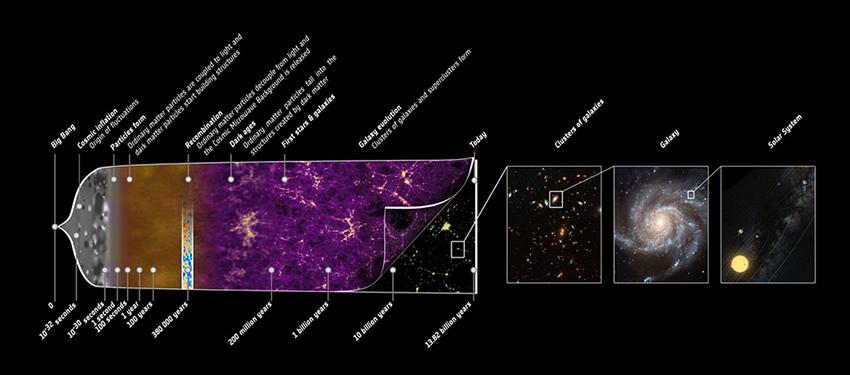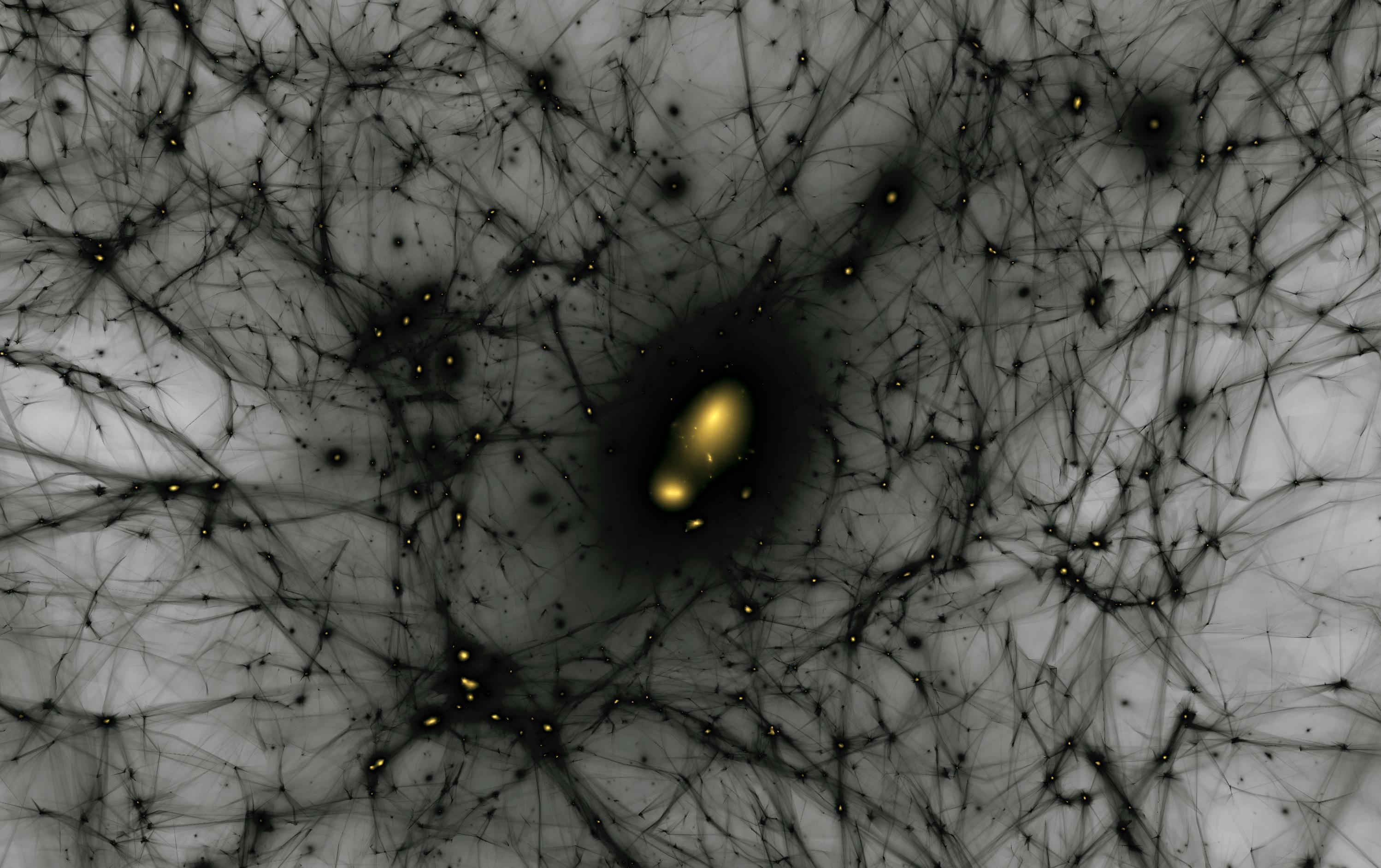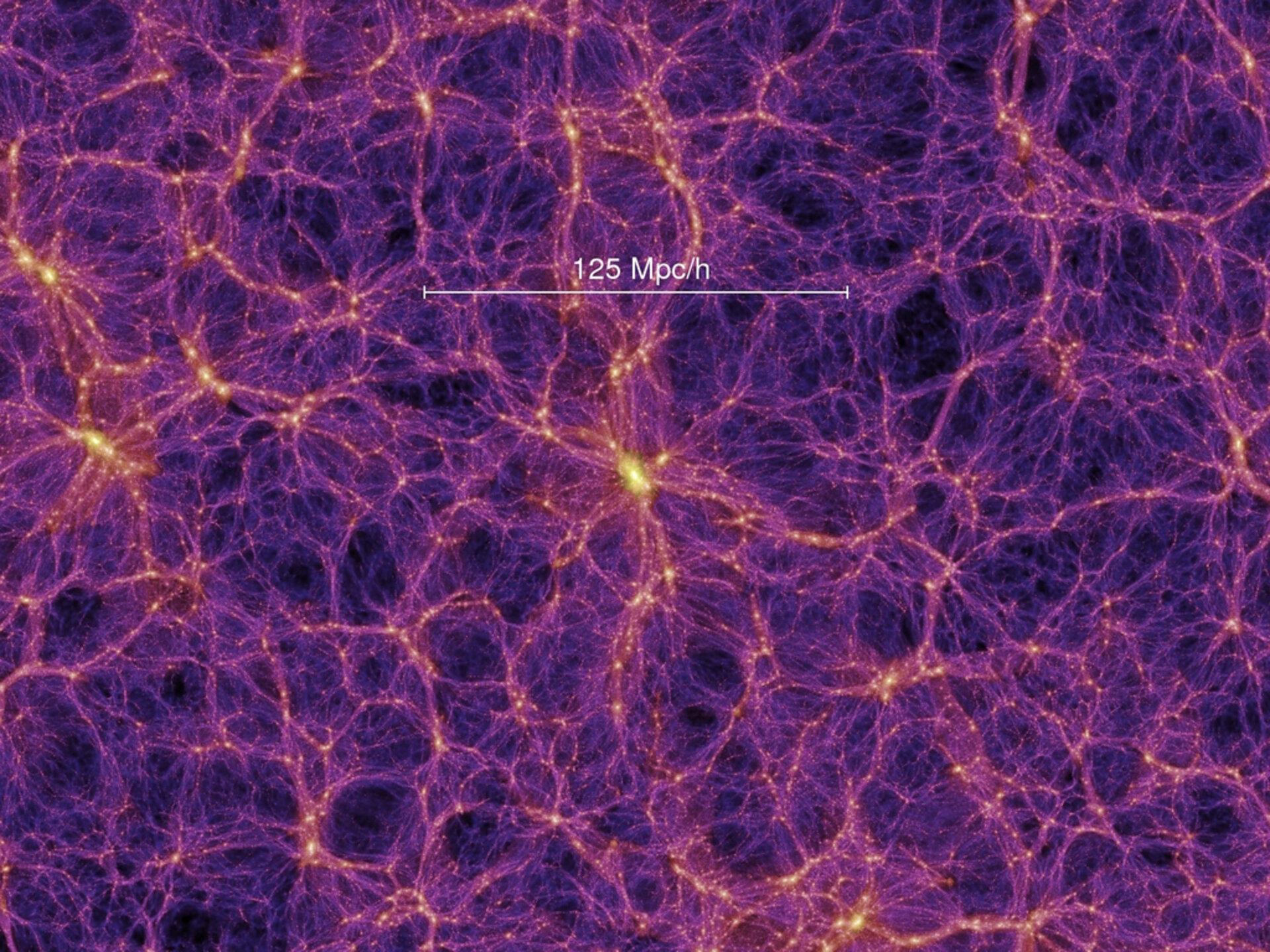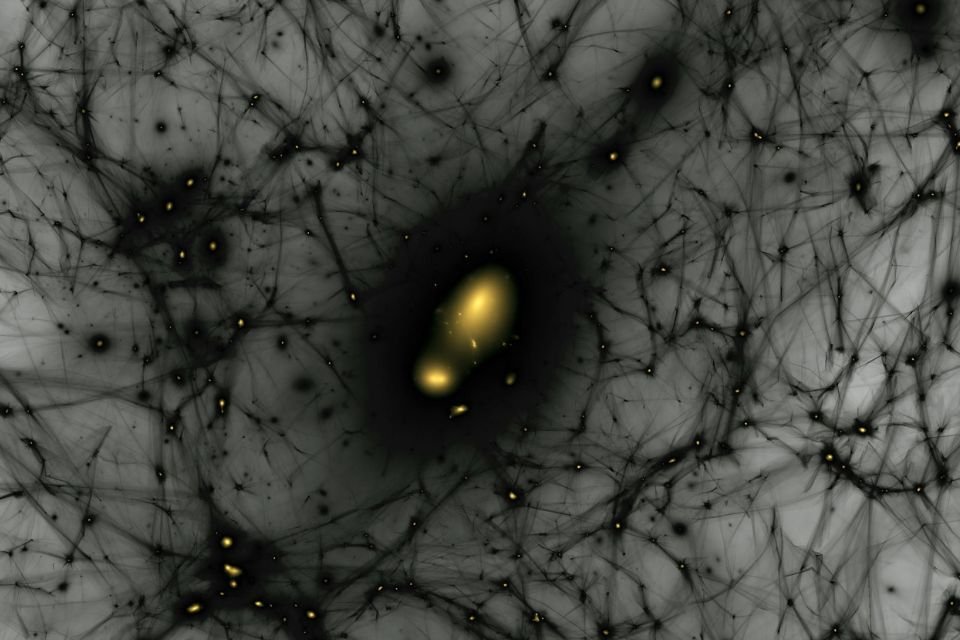One of the most curious and illogical facts about the universe The reason is that everything familiar to us in daily life only makes up 5% of everything that exists. I, you, the oceans, planets and stars… Everything that consists of protons, neutrons and electrons that make up ordinary matter is only a small part of the components that make up the Universe.
Even taking into account everything else we’ve detected (neutrinos, other subatomic particles, and even black holes), we’re still missing 95% of the main cosmic components: Dark matter, which makes up about 27% of the universe; and dark energy, which makes up about 68% of everything that exists.
especially dark matter one of the greatest mysteries of all time. Modern models of astrophysics are almost certain that this component must actually exist, as a lot of indirect evidence can be obtained from a series of independent measurements.
However, since direct evidence of any particles that could be responsible for this has not been obtained, for example in superlabs such as particle accelerators, some scientists are still skeptical of its existence.
But whatever dark matter is, our Universe would be a very different place if it didn’t have it. Here’s how.
The Big Bang would have occurred about 13.8 billion years ago. Particles and antiparticles would be created and destroyed in large quantities, leaving little protons, neutrons and electrons in the middle of a sea of radiation.
At this stage of the Early Universe, space is so hot, dense, and energetic that these particles can still combine to form the first chemical elements. Right now it doesn’t matter whether the Cosmos has dark matter or not: The relationship between the number of photons and subatomic particles is the only factor that determines how much hydrogen, helium and lithium (among others) will be created in the first moments after the explosion. Big Bang.

But after the first few minutes, the presence or absence of dark matter becomes extremely important. The early Universe was almost perfectly uniform, with roughly the same average density in space. Despite everything There were small fluctuations in these densities that grew gravitationally over time, causing stars, galaxies, and even larger structures to form.
in the universe, Gravity collapses matter, while radiation tries to separate these dense structures by pulling them apart. If everything that exists in the Universe was just normal matter and radiation, this would give rise to an enormous amount of structure at very specific and limited scales.

The only star systems that can exist on small cosmic scales will be simple star systems. without dark matter, the life cycle of stars will lose the ability to recycle elements from one generation of stars to the next.This would prevent the formation of the heavy elements needed to form rocky planets in our protoplanetary disks.
Another point is that without abundant carbon, oxygen, and other heavy elements, not only would life be impossible, but the only planets we could form would be gaseous worlds of hydrogen and helium.
At medium scales, galaxies still formed disks full of stars. But without dark matter, they would have lost most of the gas that formed new stars soon after the first major star formation event, because the gas would have been more easily ejected from the host galaxy.
Moreover, spiral galaxies will spin like our Solar System: stars and other interior objects will spin around the center much faster than those outside.

Finally, there will be much less structure overall at large cosmic scales. In a Universe without dark matter, there is no invisible “skeleton” in the cosmic web; instead, the structure is based solely on the strength of normal matter.
This means that you won’t encounter isolated islands of medium-sized galaxies and much else, rather than a cosmic web where the Universe will end up with galaxies punctuating the filaments that connect large clumps of the Universe.
If you love the fact that the Universe is this way, it would be interesting to thank dark matter. Even if we still don’t know what it is, it’s definitely a fundamental ingredient that leads the Cosmos to generate our being.
Source: Tec Mundo
I’m Blaine Morgan, an experienced journalist and writer with over 8 years of experience in the tech industry. My expertise lies in writing about technology news and trends, covering everything from cutting-edge gadgets to emerging software developments. I’ve written for several leading publications including Gadget Onus where I am an author.












